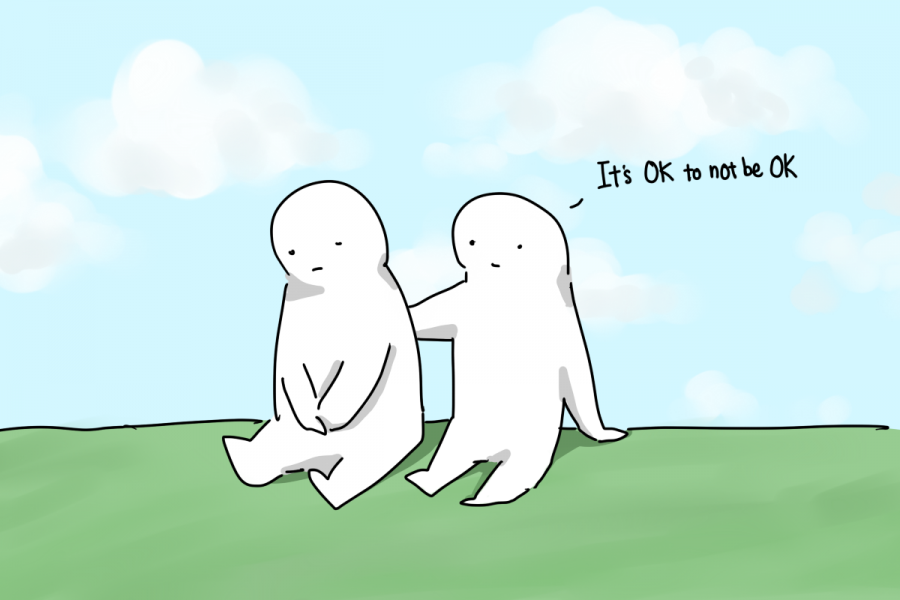How to help a friend with a panic attack
December 13, 2018
When I’m having a panic attack, most people around me don’t know what to do. They either stand there awkwardly and whisper, “I hope you feel better,” or give a small wave and leave me alone. But without help, I can’t calm myself down. I rock myself back and forth for what feels like hours, waiting for my panic attack to end.
For me, panic attacks usually happen unexpectedly and without a clear trigger. I’ll be thinking about my day, and then suddenly I feel like I can’t breathe. My heart pounds out of my chest, my hands get numb and I feel a tingling sensation all over my body. I burst into tears and start thinking irrationally, yelling that my life is horrible and meaningless. To other people, it might look an overreaction, but in reality, I have little control over how I feel or what I’m doing.
While individuals’ specific reactions and feelings vary, many students who have panic attacks experience this same helplessness, along with an inability to find support in the moment.
Receiving the right reminders and reassurances can help those having a panic attack transition into a calm state in a shorter amount of time. In health class, we learn to go to a trusted adult when a friend is struggling with anxiety, but many students are unaware of how they can help on their own. In an informal survey of 44 students, 28 didn’t know how to help a friend during a panic attack.
In my experience, students often confide in their peers rather than going to a trusted adult to discuss their mental health. They either don’t feel comfortable talking to an adult, believe their parents wouldn’t take them seriously or experience a panic attack when no adults are present. Adding information on how to comfort someone during panic attacks into the health curriculum would encourage all students to try to help and avoids any misinformation among students about what to do.
Those with anxiety have different preferences for physical and verbal comfort when they’re having a panic attack. If you know your friend struggles with mental health, ask them what you can do to comfort them when they’re having a difficult time. Even though everyone is different, here are a few universal tips to help:
- Stay calm. The person is already in a state of panic, so one of the worst things you could do is get flustered and fluster them more.
- Don’t be judgemental. The person shouldn’t have to worry about what you’ll think of them. Let them focus on calming down.
- Ask them if they want to go to a quiet area. A loud and overwhelming environment can intensify their panic attack.
- Don’t ask why they’re “freaking out.” The person is already scared and unable to think rationally. This may make their panic attack worse because they probably don’t know why it’s happening either.
- Don’t leave them alone. Stay there so you can help them if they need anything.
After I let my friends and family know what to do, they’ve been able to help me calm down and become more comfortable when I’m having a panic attack. We should all try to be there for our friends, family members and classmates, and we should take the time to inform ourselves about the proper steps to calm someone down. Because in my experience, even a little bit of help can go a long way.










